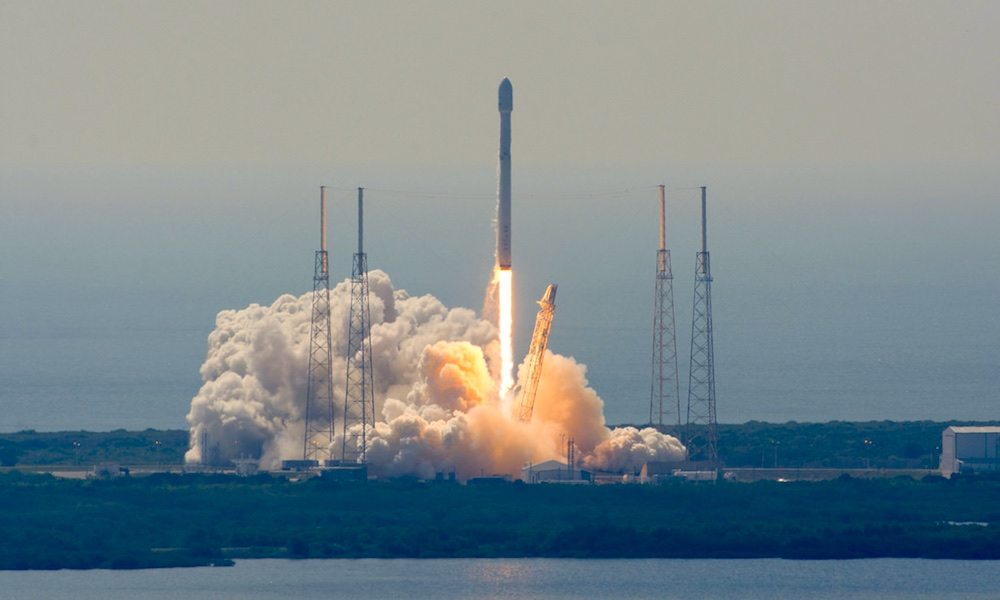SpaceX Successfully Launches Two Satellites, But Loses Rocket During Recovery

Toggle Dark Mode
Aerospace company SpaceX launched two communication satellites this morning, but lost one of its booster rockets in the process.
The aerospace company launched its Falcon 9 rocket from Cape Canaveral, Florida today. It was carrying two commercial telecommunications satellites to orbit, according to CNN.
The Falcon 9 came down to land on SpaceX’s drone ship in the Atlantic Ocean, but the rocket came down too hard and exploded, according to TechCrunch.
SpaceX’s CEO, Elon Musk, tweeted that the booster had a “rapid unscheduled disassembly,” or RUD, during the mission. He also said that the company’s drone ship, “Of Course I Still Love You,” did not suffer any permanent damage.
“Maybe hardest impact to date. Drone ship still ok,” Musk tweeted, adding that the landing video would be posted later today.
This mission was SpaceX’s second dual telecommunications satellite launch to date. The company has made three successful ocean landings prior to today, according to CNN.
Despite the crash, the company successfully delivered the two satellites into geostationary transfer orbit — which is the part of space ideal for many communication and weather satellites.
The two satellites launched today were EUTELSAT 117 West B and ABS-2A. Both satellites are owned and operated by telecommunications companies. The former belongs to Paris-based EUTELSAT, and the latter is owned by Bermuda-based Asia Broadcast Satellite.
Both satellites will join satellites the companies already have in orbit, and will provide telecommunications coverage for their customers, according to TechCrunch.
The satellites were both launched successfully, making the mission an overall success, despite the unsuccessful recovery of the booster rocket.
It’s important to note that landing an orbital rocket is still in its experimental stages. There are a lot of kinks that have to be worked out before this type of rocket recovery becomes routine.
Similarly, more data is needed to understand why the rocket crashed on impact, TechCrunch wrote.






